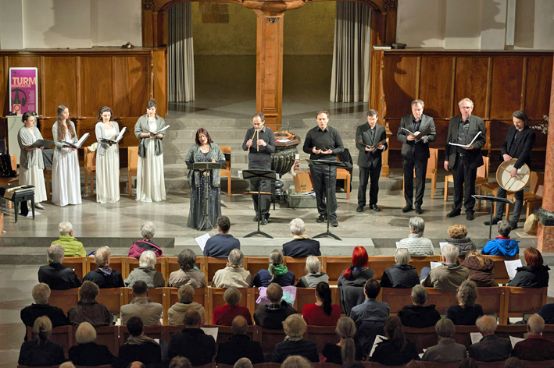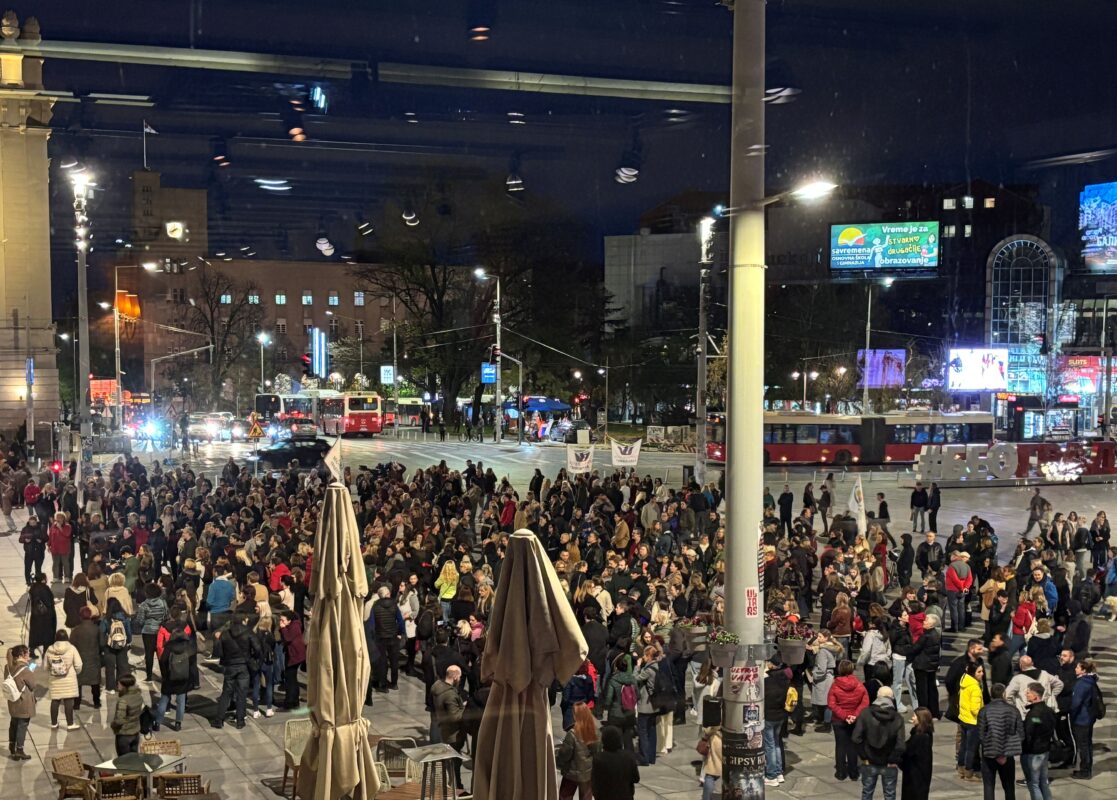A visit from the past
How do we deal with earlier times? The latest edition of the Early Music Festival Zurich from March 22 to 31 provided plenty of food for thought.

Why should we listen to music from historical eras? The music of mostly dead white men, as a friend recently complained. The problem challenges the entire classical music industry, but is even more acute for an organizer like the Forum Alte Musik Zürich. After all, the programme focuses of the festivals it organizes twice a year often date back to times long past.
However, as this year's spring festival under the motto "Metamorphoses" shows, the solutions sprout most abundantly where they are most urgently needed. Consciously or unconsciously, the program spread over two weekends offered a range of answers to the question of why or how one should engage with works that originate from a culturally and socially distant environment.
Fresh prelude and solitary climax
This began with the small aperitif concerts in which Linda Alijaj and Hitomi Inoue, both students at the Zurich University of the Arts, performed Benjamin Britten's Six Metamorphoses after Ovid for solo oboe. You could call this the museum approach to the past and you would certainly not be entirely wrong. The choice of this piece and the additional excerpts from Ovid's poem performed by drama student Morris Weckherlin were a clear and demonstrative reference to the long tradition of European culture. The fact that Britten's work is not early music lends a certain freshness and testifies to the openness with which the Forum designs its programs.
Of course, the most common approach to old works among organizers could also be observed over the two weekends: The question of their topicality is not even asked; instead, one simply trusts in the power of the music and tries to present it as favorably as possible in a good interpretation. At the Metamorphosen Festival, for example, in a concert dedicated to Josquin Desprez, for many the most important Renaissance composer. The vocal ensemble Alamire demonstrated impressively in St. Peter's Church what English small ensembles are rightly famous for. The interweaving of voices was realized with tremendous agility, individual voices were emphasized and the flow of sound was structured. Individual phrases were given a little more space here and there without disturbing the delicate texture. Even the early and still relatively sparse Missa d'ung aultre amer blossomed sensually under the direction of conductor and musicologist David Skinner. The only question is why this concert was one of the worst-attended of the otherwise well-attended festival - because musically it was a highlight. Perhaps it can be interpreted as an indication that it is no longer enough to simply present so-called masterpieces of music history in order to attract an audience. Or it was simply a coincidence.
A modern look back and an excavation
In contrast, three concerts in which attempts were made to revive lost or even forgotten traditions drew large audiences. For example, the Deutsche Hofmusik presented a reconstruction of Johann Sebastian Bach's lost Köthen funeral music and the Ensemble Melpomen, under Conrad Steinmann's direction, even ventured to imagine the music of ancient Greece. And, coincidence or not, it was precisely in such moments of tentative, speculative approach that the confrontation with the past proved to be extremely productive. Namely, by forcing us to think about how we deal with the past.
This became most apparent at the Helferei during the concert by Arianna Savall's group Hirundo Maris. Savall opened her European journey through 200 years of Minnesang with an invitation to the Middle Ages, and even then one wondered whether it wasn't rather the other way around. Aren't we being visited by the Middle Ages? And as a good guest, adapting to the customs of the host? Without bringing the dirt and disturbing habits with it? After all, Hirundo Maris did not offer an authentic Middle Ages, but a modern look back. This would not be problematic in principle, as there is no other option but to adopt a certain view of the traditional text and melody as conscientiously as possible. And musically, the solution was excellent and historically sound. But all the fuss, including the "medieval costume", was disconcerting. More distance from its own actions would not have done the ensemble any harm. Nevertheless, or perhaps precisely because of this, the audience left the concert musically exhilarated and intellectually stimulated. And what more could you want? Many events with contemporary music are not able to achieve this.
The final concert with a vesper by Carlo Donato Cossoni, a northern Italian composer of the 17th century, most of whose music is preserved in manuscript form in the library of Einsiedeln Abbey, provided an insight of a completely different kind. It is now one of the industry's favorite marketing tricks to rediscover unknown minor masters. Once again, however, it was noted that for many of these discoveries it would be no great loss if they were never made. However, one of the many strengths of the festival is that such concerts are also remembered as profitable.
-

The Ensemble Melpomen under the direction of Conrad Steinmann with music from ancient Greece. Photo: Rolf Mäder








